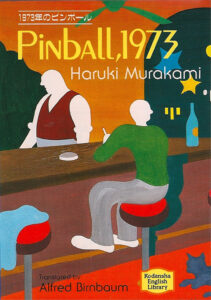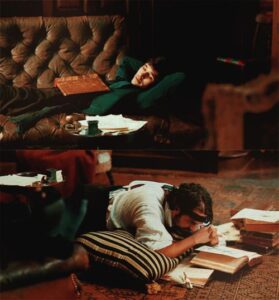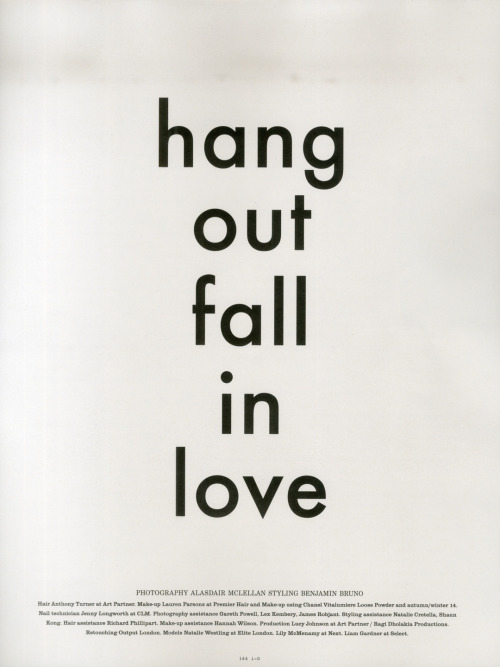00V of potential hindrances to our creative development continued…
In the intro of this chapter, I proposed that we need to be in a receptive state in order to dial in to inspiration and I left off with the question: So how do we go about prepping our receiving equipment? It seems to have a lot to do with our attention.

Cover art by Sasaki Maki.
Back in chapter 4, I talked about the living quality of finding and appreciating what we love. When Japanese writer Haruki Murakami was asked how he found the confidence to do what he wanted as a teenager he replied,
“Confidence; as a teenager? Because I knew what I loved. I loved to read; I loved to listen to music; and I love cats. Those three things. So, even though I was an only kid, I could be happy because I knew what I loved. Those three things haven’t changed from my childhood. I know what I love, still, now. That’s a confidence. If you don’t know what you love, you are lost.”
Appreciating what we love is a way to focus our attention when our attention is being called, hacked and scattered in all directions. It’s a challenge not to get caught up in the perception of not enough time, money, space, etc. or to focus too heavily on the future, our phones and what we don’t like or want. It may seem like the current speed of our culture and our technology makes us unique in regards to exposure to overwhelming distraction and external demands. Feeling this, I used to pine for simpler good ol’ days. Then I was shocked when I discovered On the Shortness of Life by the Roman Stoic philosopher, Seneca. Over 2000 years ago he wrote:
 “Everyone hustles his life along, and is troubled by a longing for the future and weariness of the present.”
“Everyone hustles his life along, and is troubled by a longing for the future and weariness of the present.”
[…]
“They keep themselves officiously preoccupied in order to improve their lives; they spend their lives in organizing their lives.”
[…]
“The greatest obstacle to living is expectancy, which hangs upon tomorrow and loses today.”
I gotta admit that I was a bit bummed out to discover that we apparently haven’t learned much in 2000 years, but I was also relieved to think that my present external conditions aren’t the ultimate deciding factor. I get to choose where I direct my attention, even if it takes some practice. As playwright Richard Foreman put it,
“You want to remove the hypnotic power that the world currently has over you. Rather than be hypnotized by it, you want to be free of the world. You want to realize that the world you see is made by the way you see it.”
I imagine that anyone reading this is well aware of the value of being present in the moment (even if you haven’t got a handle on it). I myself have dabbled in meditation (a 15min sesh at the beginning of my day) but nothing makes me more present than messing around with some paint or goofing around on the ukulele (without any attachment to outcomes). I should emphasize that my attention at these times is in a calm and relaxed state. I have a clarity of vision but it’s not an acute singular clarity. As I have mentioned numerous times in the past, there is no reaching focus because I am not actively seeking anything; any expectation of something to come would yank me out of the moment.
This relaxed state is the reason why some of my greatest moments of inspiration have come while I am brushing my teeth (George Harrison said the same thing), blow drying my hair or while I’m in the shower (super inconvenient when you need to write something down). I am now aware that these circumstances allow me to be thoughtless enough to receive information, ideas or impulses. It reminds me of a scene in Jane Campion’s 2009 film, Bright Star:

Ben Whishaw (John Keats) & Paul Schneider (Charles Armitage Brown) doing nothing in the film Bright Star, 2009.
Mr. Brown: If Mr. Keats and myself are strolling in a meadow, lounging on a sofa or staring into a wall, do not presume we are not working. Doing nothing is the musing of the poet.
Miss Brawne: Are these musings what we common people know as thoughts?
Mr. brown: Thoughts, yes, but of a weightier nature.
Miss Brawne: Sinking thoughts?
Mr. Brown: Not really, Miss Brawne. Musing; making one’s mind available to inspiration.
I wish I could say that chilling out is a predictable guarantee, like— let me go hop in the shower and I’ll bring back the answers! But, alas, I don’t think we can command these forces. I have noticed, however, that my ability to receive new ideas/impulses seems to be contingent on the direction of my daily thoughts.
If I spend my day worrying about the future, the government, my rude ass neighbour, the price of gas, my incompetent boss, the weather, etc., chances are, I am not going to achieve a relaxed state and I am not going to notice any inspiration outside of what I am always thinking about. I will just keep finding all sorts of evidence that confirms the thoughts, ideas and feelings I have. Even if I am wishing for inspiration, my attention is on my lack of inspiration which is turned away from it. If, on the other hand, I spend the majority of my day wondering about something I am genuinely interested in then all sorts of signs, ideas and connections sort of show up. It’s as if I am able to tweak my dial to certain channels; the more often I think about the subject of these articles, the more open I am to new links of thought when I am in a relaxed state. Inspiration is infinitely available but it seems to come down to whether we are available or not.
From all this I gather that prepping my receiving equipment involves a combination of directing my attention, in a conscious way, toward what I am curious about so that most of my thoughts are in the direction of what I want or what I am interested in. Then I create moments when I am relaxed and thoughtless enough to receive inspiration (usually in connection with what I have been appreciating).
I realize that most people are probably not going to get their inspiration while brushing their teeth so allow me to expand on potential approaches to bump into your particular dialling and availability.
True love is not magic, it’s certainty
And what comes after certainty
A world of mystery
BILL CALLAHAN
*Disclaimer: No copyright infringement intended. I do my best to track down original sources. All rights and credits reserved to respective owner(s). Email me for credits/removal.
